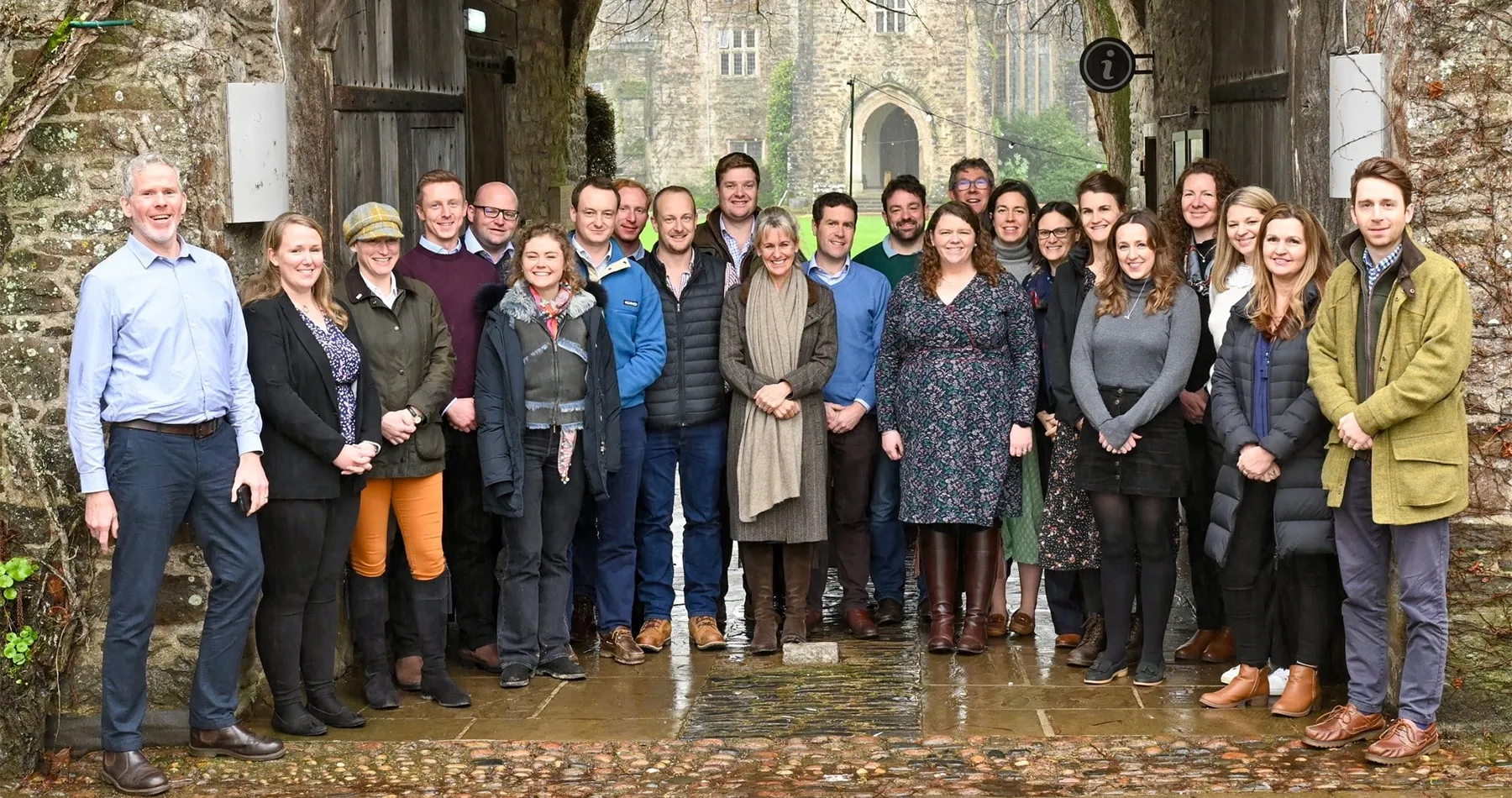
What qualities define effective leadership?
Earlier this year, I was fortunate enough to attend the Worshipful Company of Farmers Challenge of Rural Leadership course run in partnership with Duchy College.
As a two-week residential training course, the thought of having this extensive period away from home and work was daunting but it was utterly necessary to get the most from this prestigious course.
Investing in your own continued professional development (CPD) is not always easy to prioritise, however there are huge benefits to be had both personally and for your business or the organisation you work for if you do make time for it.
The contents of the course is something the organisers like to keep a tight lid on until you arrive. So all 20 of us who were fortunate enough to be awarded a place on the course this year would admit that we didn't really know what we were in for when we arrived at Dartington Hall in Devon one wintery, January afternoon.
But I can promise you was a privilege to attend. It's an intensive programme but it provides the opportunity to really develop management and leadership skills with training sessions and presentations from an impressive array of significant, industry representatives.
Written by...

One of the main sessions that will stick with me was delivered by Howard Petch, an ex-agricultural lecturer who provided us with his reflections on leadership.
Here I share a taster from that session and the ten questions to ask yourself when on the path to becoming or being a successful leader.
1. How well do you know yourself?
Before becoming a successful leader you need a strong understanding of your own character. Knowing what motivates you, your strengths and weaknesses and your values and beliefs, for example, all has an influence on how you are perceived by others.
As a leader you are a role model and being self-aware can ensure you are presenting yourself in the way you would like to be received by those you work with.
2. Are you emotionally intelligent?
Emotional intelligence (EI) is the 'Ability to understand your effect on others and manage yourself accordingly'. It's suggested that EI accounts for nearly 90% of what helps move people up the ladder towards leadership roles.
There are four main components of EI:
- Self-awareness - this links back to the question above, how well do you know yourself
- Social awareness - how well do you take into consideration the feelings of others and show empathy. Are you able to get into the heads of others to provide help and support?
- Self-management - the ability to control emotions and react appropriately to challenge; self-regulation grows integrity
- Social skills - this is being able to 'be friendly with purpose' and build a rapport with your teams and colleagues
Not everyone will be strong in each of these areas but having an awareness of what 'makes-up' EI is key for those in leadership positions to have an understanding of.
3. Are you an incomplete leader?
If your answer to this question is yes, then that's ok. Recognising that there are gaps in your skill set is an important step on your leadership journey.
The key elements of leadership are:
- Authenticity
- Strategic focus
- Creative thinker
- Commercial mindset
- Performance mindset
- Team formulation and effectiveness
- Developing others
- Flexibility
We are not all going to be good at all of these 'things', but if you can be aware of areas you may find a challenge and dedicate time to developing these skills, know that you are heading in the direction to becoming a more complete leader.
4. Do you surround yourself with good people?
Whether in business or in your home life this saying is so true. From employing people with the right character, chemistry and competencies to finding coaches or mentors that you can work with, having a supportive network around you is key to your future success.
5. Are you trusted by your people?
High levels of trust in leaders correlate with higher levels of employee engagement which can support positive business outcomes. As suggested by Cynthia Stuckey, fostering trust should be more than a human resource activity, it should be a business strategy.
The main drivers to helping build trust within your team include:
- Integrity
- Competence
- Openness
- Effective communications
- Concern

6. How do you exercise power?
There are five types of power that can be expressed through leadership:
- Coercive - conveyed through fear and can be a style used to set high expectations
- Reward - involves the use of incentives to encourage positive reinforcement
- Legitimate - via having a position of authority i.e. being the boss
- Expert - achieved through building experience, skills, knowledge and credibility which earn respect
- Referent - the consequence of being trusted and respected
Establishing a leadership style that encompasses a balance of these leadership styles will help ensure you can empower your team to deliver positive outcomes, while also developing their trust.
7. How well do you manage knowledge?
CPD is an important aspect of anyone's career journey and continuing to invest time in your personal development is important to expand your own knowledge.
Encouraging a culture of reflective learning within an organisation is also beneficial. It can be easy to finish a training course or mentoring session and move straight into the next job on your to-do list, but making time to reflect and absorb this information is key. This could be through team sharing sessions, writing up your notes or making a regular time in your diary to review recent training sessions.
8. Do you know whether you are still doing the right things?
This relates to how you can avoid slipping into complacency and losing sight of the bigger picture. As a leader this can be supported by making time for 'being on the balcony' looking into a business, rather than 'being on the dance floor' and delivering on the day-to-day.
9. How do you lead the change process?
Managing change is knowing what to change and ensuring you are taking your team on the change journey with you. It's important to remember that everyone will be at different stages on the journey of accepting change and a good leader will consider how to manage people on this journey.
10. Be inspired and inspire
Remember, 'We cannot wait for great visions from great people, for they are in short supply. It is up to us to light our own small fires in the darkness'. If we can inspire others through empowerment and the way we behave it's amazing how this can support overall business and personal performance.
There is no right or wrong when it comes to leadership, everyone will have their own unique approach and style. But remember, 'The practice of leadership is an art, whereas the practice of management is a science. Managers are necessary, leaders are essential'.
More recent insights

What is regenerative farming?

Open Farm Sunday – bringing comms strategy to life
